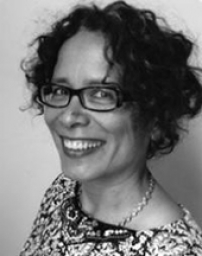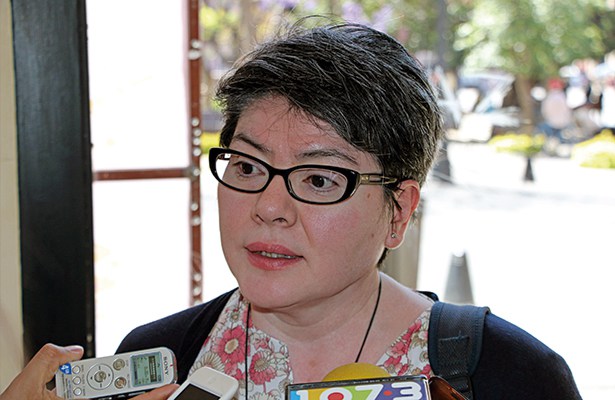The Permanent Peoples Tribunal on the Violations of the Human Rights of Migrant and Refugee Peoples launched in Barcelona on July 7-8, 2017 was co-convened by more than 30 migrant and refugee organisations and endorsed by 100 movements, networks and organisations.
The preparation process included two preparatory meetings, the setting up of a PPT Working Group (Barcelona based migrant and other organisations; the Transnational Migrant Platform-Europe and other movements involved in the struggles of migrant and refugee peoples) in regular coordination with the PPT Secretariat. This will also provide the coordination for the further PPT Hearings & Sessions – as well as drawing from the organisations in the areas where the Hearings are held.
This PPT Session is being organised within the framework of the indictment developed for the launch in Barcelona – which is based on an analysis of the current economic and political conjuncture globally as well as in Europe and drawn from the testimonies and lived experiences of migrant and refugee peoples. Four key pillars make up the framework of this PPT:
- Root Causes of Forced Displacement & Conditions of conflict and war leading to outmigration and refugee
- Hazardous Journeys and closing down of legal routes
- Border regimes of exclusion/walls/immigrations policy
- Fortress Europe – experience of precarious migrant status and exploitative conditions of work within Europe
Gender, Youth and Racism are identified as cross cutting issues across these pillars. (See below a brief summary of this framework)
Goal and Objectives of PPT on Migrant and Refugee Peoples
The PPT is a process that is being built from below, with the people most involved and most directly affected. The process is being initiated as a journey where many can participate from the borders of Europe and from the countries of origin, transit and destination. That is why it is important to socialise the whole process among migrant and refugee organisations and communities; and the networks and platforms that support the work of denouncing the violations of human and peoples’ rights taking place along the multiple borders and the daily struggles of migrant and refugees. Therefore, the mobilisation of the migrant and refugee peoples in the conceptualisation, development and implementation of the PPT is crucial.
The overall goal is to strengthen the role of Migrant and Refugee peoples as key protagonists and social actors in the articulation of the conjuncture, the naming of the violations of their human rights and in proposing alternatives.
The PPT also aims to facilitate migrant and refugee movements to develop new alliances with other social movements and with the research, academe and other related sectors.
Specific objectives of the PPT process include:
- Receive and document rigorously the testimonies of the communities of migrants and refugees including their proposals to advance a rights-based approach and an alternative framework.
- Listen and make visible the cases of violations of the rights of migrants and refugees.
- Analyse jointly the root causes (including trade and investment agreements, global extractivism as well as the global production and labour chain) of the forced displacement of migrants and refugees.
- Determine the responsibilities of governments, including the European Union and other official European bodies.
- Focus the role of transnational corporations in the global labour chain, as well as in the border regimes, and in detention and in deportation
PPT Process – Hearings and Sessions
On July 8, 2017, the official opening of the Permanent Peoples’ Tribunal Session on The violations with impunity of the Human Rights of Migrants and Refugee peoples (program) was carried out in the city of Barcelona. The call for action disseminated by TMP-E and TNI focuses its reasons on the necessity “to give visibility to the people of migrant persons as an inviolable subject of rights; to identify and judge the “chain” of co-responsibility along the migratory route leading to the violation of migrant people’s human rights; and to urgently provide and foster adequate measures for access to justice”.
Please see documents of different hearings in 2017-2018
- Opening Session – Barcelona, 7-8 July 2017
The opening act has been promoted by a social platform that includes more than 100 organizations, associations and social movements (see the list of the endorsment) which have been convened by the Transnational Migrant Platform (TMP) and the Transnational Institute of Amsterdam (TI).The Indictment presented to the Tribunal has been supported by a broad spectrum of testimonies and exemplary cases that have reconstructed the structural factors and policies that determine the vulnerability, dependency, disappearance and denial of the future of migrants and refugee people.
The general structure and doctrinal orientation of the Indictment has been built around the need to investigate and document the root causes of migration and forced displacement; routes and violations of human rights; the border regime; the policies of exclusion characterising the Fortress Europe, with special attention to the transversal factors, which are the gender issue and the minors.
In its concluding remarks, the panel of judges of the PPT, composed by Bridget Anderson (UK), Carlos Beristain (Spain), Jennifer Chiriga (Zimbabwe), Leticia Gutiérrez (Mexico), has made reference to doctrinal aspects of migration, shared experiences of resistance and has formulated, for this Session, perspectives and methodology of work, in consideration of the PPT mission and jurisprudence.
As stated by Gianni Tognoni, Secretary General of the PPT, “this opening Session, which will be concluded by the end of 2018, requires a significant extension of the support networks, an intensified collaboration with groups of experts in the different sectors, a rigorous coordination of the various steps and initiatives. This process aims to become a tool for active presence in society, a cultural, political and legal literacy, an indispensable condition for the recognition of migrant and refugee people as inviolable subjects of law”.
2. Hearing of Palermo, 18-20 December 2017
The firstHearing which begins in Palermo, will be dedicated to migratory flows in the Mediterranean, Europe’s southern border, now reduced to a cemetery of horrors.
3. Hearing of Paris, 4-5 January 2018
This hearing will look at the internal borders of the European Union and the related policies and practices of various member states.
- The Indictment (French)
- The Sentence of the Tribunal (French – Spanish)
- More information on the hearing can be found at the website of Intercoll (only available in French)
4. Hearing of Barcelona, 29 June – 1 July 2018
In the framework of the Session on the violation of the rights of migrants and refugees, the hearing on the “No rights” spaces will take place in the city of Barcelona from June 29 to July 1, along three axes: Southern border with Spain, Gender, Minors and young people
The Declaration (Spanish)of the PPT panel of the judges that heard in Barcelona, on the occasion of the hearing on “non-law” spaces (29 June – 1 July 2018) is available in Spanish. Representatives of associations and communities of migrants reported numerous cases of violation of human rights occurring at the southern border of Spain and more generally against women, LGTB communities and minors.
5. Hearing in London, 3 – 4 November 2018
The Permanent Peoples’ Tribunal will hold a Hearing on The hostile environment on trial, with a focus on the working condition of migrants and refugees. The hearing is part of the Session on The violation of human rights of migrants and refugee peoples (2017-2019):
5. Presentation Concluding Statement 45th PPT Session on Rights of Migrant and Refugee People
After eighteen months of work, analysis and evaluation on the violations with impunity of the human rights of migrant and refugee peoples, the 45thSession of the Permanent Peoples’ Tribunal (TPP) will illustrate and presentits concluding Statement at the European Parliament, based on the deliberations and judgments previously adopted.
Brief Summary Framework of the PPT on the Violations with Impunity of the Human Rights of Migrant and Refugee Peoples
The PPT indictment developed for the Barcelona Launch on July 7-8 identified four main Pillars and stages in the migration journey – which are also characterized as “sites with rights” and “sites without rights”. Furthermore, the agendas of Gender and Youth and Racism are recognized as integral and cross-cutting in all stages of the migration journey:
- Root Causes and Forced Displacements and out-migration
The forced displacement crisis is neither spontaneous nor circumstantial. It is linked to several structural causes that underpin the prevailing social and economic model; therefore, these causes (land grabs, loss of livelihoods, unemployment, continuing wars, irreversible destruction of the environment, climate change – generating hunger, impoverishment) need to be addressed at their core, otherwise the human tragedies that cause forced displacement will not be identified. Currently, the mechanisms used by capital to grab capital gains and maintain its profit rates escalate, extending to exploitation, expulsion by dispossession and necropolitics.
- Hazardous & Dangerous journeys of transit and closure of legal routes leading to mass deaths.
The “non-law” spaces that are built on European borders allow, people badly wounded in barriers not to be assisted, and human beings in the desert to be abandoned. All this justified by the primacy of the territorial borders and sovereignty of Europe. These are areas where Europe can implement policies that are separate and far removed from human rights. They are “non-law” contexts where legal primacy is exercised by immigration control and where bilateral relations have more weight than international human rights conventions. The impact that these policies have on the violation of the rights of the people who move has increased in the last decade, and has had a significant impact on the right to life.
- Border regimes that are militarized and criminalized – and operate on exclusionary policy
The creation of non-law spaces by externalising and militarising borders create no-rights zones. The construction of non-law spaces has been accompanied by the victimisation, criminalisation and reification of people on the move, which has formed part of the process of stripping them of their status as people. That is why neither they nor their families have recognised rights and the European states are thus exempt from responsibility for the violence that they exert against the victims and the survivors of the border war. Externalisation of borders being outsourced by the EU to Libya and other North Africa countries is creating mass detention centers with intolerable conditions which include torture and Mass deaths on the seas has been ‘normalised’.
- Fortress Europe – living and working conditions that are exclusionary and intensifying levels of racism, xenophobia and islamophobia eroding the possibility of integration.
The consequences of the global financial crisis and the pursuit of neoliberal austerity measures has led to a profound economic and political crisis in Europe. The EU is currently restructuring its economic and political system. Unemployment has reached record levels, especially in “peripheral” countries (Greece, Spain, Portugal, Ireland, Bulgaria, Romania and the Baltic States). There is an imbalance between the former Eastern European countries and those of Western Europe in terms of economic and social conditions. Explicit authoritarian and racist political parties are on the rise in several countries and their representatives hold seats in national parliaments and governments. This toxic mix of political and economic conditions has fuelled more overt racism, xenophobia and islamophobia It results in focusing the blame on migrants and refugees with some sections of European citizens seeing them as the cause of unemployment, insecurity and the pressure on public services, including schools, housing and health services. Solidarity activities such as rescue at see or helping migrants and refugees to cross borders has been criminalised.
Moreover, migrant workers in several sectors (domestic work in the private household, care work, hotel and other service work, building work and agriculture work etc) are experiencing the daily conditions of combined precarious or undocumented migration status and precarious and extremely exploitative labour conditions.




